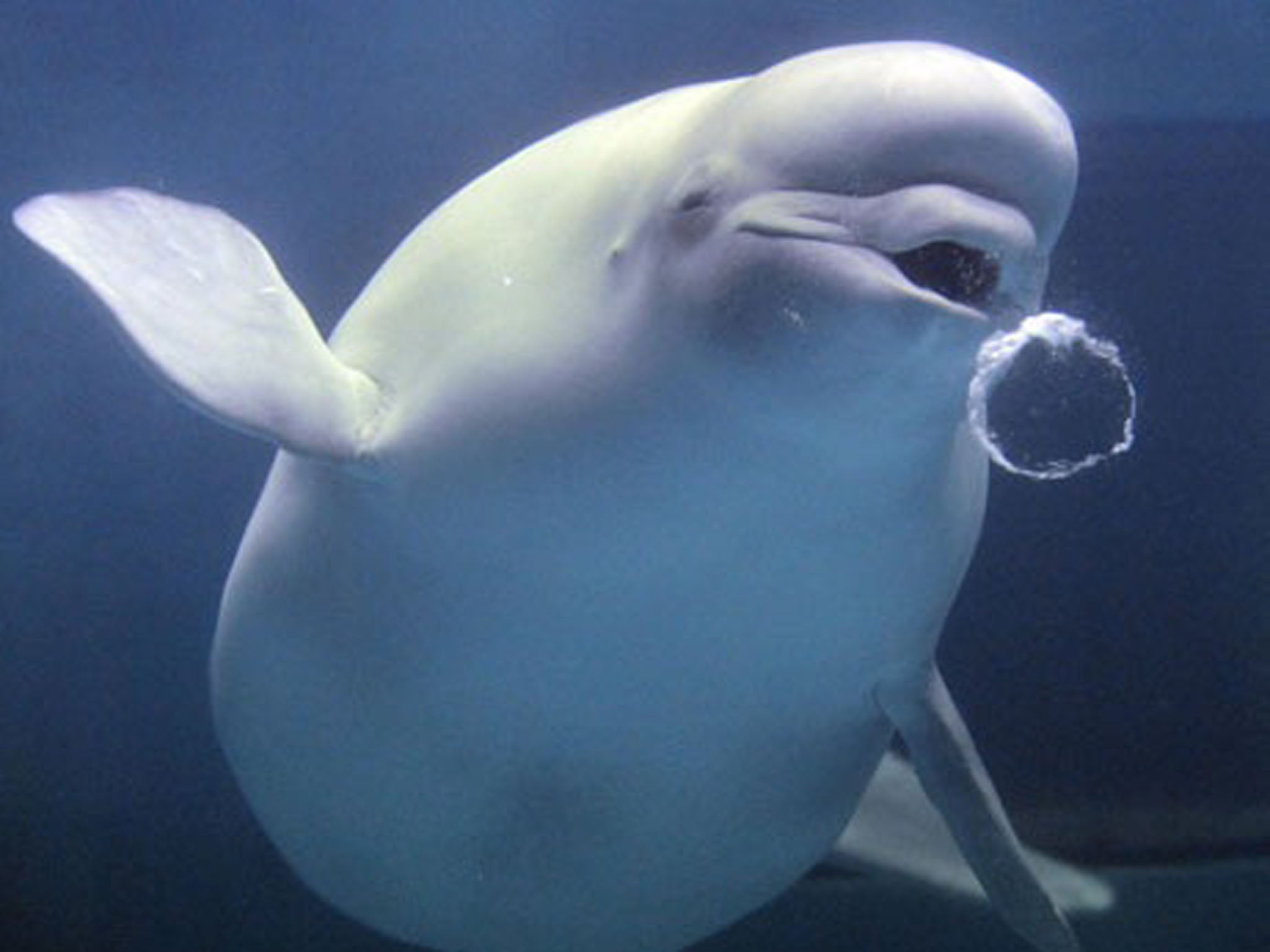Killer cat parasite spreads to Arctic: Toxoplasma found in beluga whales
Concern for Native Inuits over potentially dangerous parasite as whale meat is an important part of their diet

A parasite that lives in domestic cats has spread to beluga whales in the Arctic which scientists believe have been infected through water or fish that have been contaminated with cat faeces washed into the sea.
Tests have shown that the Toxoplasma parasite, which is potentially dangerous to pregnant mammals including humans, is now infecting more than 10 per cent of beluga whales living in the Beaufort Sea off Canada.
Native Inuits living in the area have been warned to take precautions when preparing and cooking beluga whale meat, which is an important part of their traditional diet. Toxoplasma can cause serious health problems for pregnant women, such as congenital disorders and miscarriages.
Michael Grigg of the University of British Columbia said that it is the first time an infectious form of Toxoplasma gondii has been found in the sea mammals living in the Arctic and its appearance could be related to a warmer climate as well as an increasing number of pet cats being kept by locals in the region.
“This common parasite is now emerging in the Arctic. We found it for the first time in a population of western Arctic beluga in the Beaufort Sea. This is a parasite found in cats so why is it found in the Arctic and why are we seeing it in beluga? That’s what we are investigating,” Dr Grigg told the American Association for the Advancement of Science.
The Toxoplasma parasite, a single-celled microbe, can infect most warm-blooded animals but it must complete its complex life cycle in cats. It is usually harmless or causes only mild symptoms but it can cause more serious problems, such as blindness and miscarriages.
“There is no indication yet that the beluga whales were suffering any undue symptoms. There was only mild inflammation so this would suggest it has set up a transmissible, naturally infectious agent,” Dr Grigg said.
“However, we’re only seeing the healthy animals. Those that potentially get sick and get rapidly scavenged to we might be missing those. We didn’t see it before, we’re seeing it now. We’re not seeing it dramatically increase, but our sample sizes are small because of difficulty in getting access to the animals,” he told the meeting.
The scientists first identified the parasite in beluga whales in 2009 and an analysis of stored beluga blood samples indicates that the microbe has been infecting the beluga of the Beaufort Sea at least since 2006 and has since infected between 10 and 14 per cent of the whale population in the region, he said.
“With climate change there is an unprecedented opportunity for pathogens to shift to new environments and cause new disease. With increasing temperatures pathogens can persist and gain access to new hosts,” Dr Grigg said.
The most likely explanation for the appearance of Toxoplasma in the Arctic is that contaminated cat faeces has been washed into the sea and carried into the beluga environment.
“It has to have been some kind of contamination of the waterway and the typical type of food source of the beluga...we know that Toxoplasma could be transported by fish as a vector where it gains access to the intestinal tract of beluga,” he said.
“Toxoplasma is actually quite common in sea-mammal populations [outside the polar region]. Infection rates can range between 40 and 60 per cent. What was surprising is that it’s not really been in the Arctic yet,” Dr Grigg said.
Local Inuit have changed many of their traditional habits and have brought pet dogs and cats to their settlements, he said.
“Toxoplasma is a cosmopolitan parasite. It tends not to cause disease in its immediate host but some strains can be quite pathogenic,” Dr Grigg said.
“A cat can excrete 100 million infectious Toxoplasma oocysts [seeds] and all it takes is for one of these oocysts to infect a warm-blooded vertebrate like ourselves.
“They are incredibly stable in the environment. You can put them in 100 per cent chlorine bleach and it won’t kill them. The only way to kill them is to freeze them, dessicate them or boil them,” he said.
“If there is infection in whales and the meat is not appropriately cooked then there is a risk of infection,” he added.
Join our commenting forum
Join thought-provoking conversations, follow other Independent readers and see their replies
Comments
Bookmark popover
Removed from bookmarks